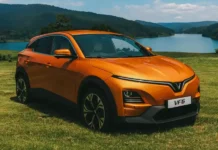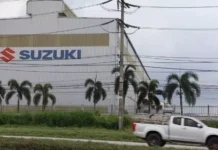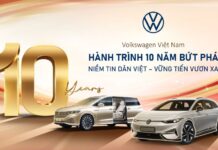Porsche steals the spotlight with its announcement of developing a gas-powered SUV to replace the Macan, while also committing to keeping internal combustion engines in its long-term strategy.
At the Annual Press Conference on March 13, 2025, in Stuttgart, Germany, CEO Oliver Blume revealed that their flagship models, the Cayenne and Panamera, will continue to be upgraded to meet market demands, with internal combustion engines retained until 2030.
There had been speculations about Panamera and Cayenne adopting smaller engines to comply with tightening emissions regulations. However, Porsche confirmed its commitment to not downsize engines, with the Cayenne retaining its V8 engine until 2030, while the Panamera will also continue to use V6 engines for an extended period. The plug-in hybrid versions will be maintained, with a significant increase in the all-electric range expected, possibly reaching 90 km as hinted by Autocar sources.
Porsche seems to be reverting to internal combustion engine development plans as the electric car market isn’t growing as rapidly as anticipated. Mr. Blume acknowledged that the plan to achieve 80% of sales from electric vehicles by 2030 was “unrealistic.” In 2024, pure electric vehicles accounted for only 12.7% of Porsche’s global deliveries of 320,000 cars, according to the company’s disclosed figures. “Customers still love gasoline engines, especially in large markets like the US and China,” said Mr. Blume, adding that global demand for electric vehicles is slowing down.
Despite the focus on gasoline engines, Porsche hasn’t abandoned electric vehicles. The all-electric fourth-generation Cayenne will be launched at the end of 2025, followed by the 718 Boxster and Cayman electric models in 2026. A large three-row electric SUV aimed at competing with the Tesla Model X is also planned for this decade. “We are balancing tradition and future,” affirmed Mr. Blume.
Porsche has long declared that the 911 will be the last model to retain an internal combustion engine. To make this happen, the company is heavily investing in synthetic fuels (eFuel). The eFuel production facility in Punta Arenas, Chile, has been operational since 2022, using water and CO2 combined with wind energy to create a near-carbon-neutral fuel. In late 2022, Porsche successfully tested eFuel in the 911 Turbo S, achieving performance equivalent to that of traditional gasoline.
Thai Son (Tuoitrethudo)
References: Motor1





























.jpg)











